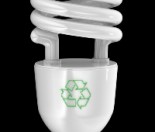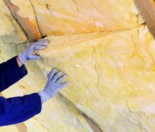I have always gone for the most eco looking product on my supermarket shelves. When my baby was born, however, I started looking a bit more earnestly at what was in some of these products. What I found was surprising – more than just realising that having a dolphin on the pack doesn’t necessarily mean that a product is eco friendly!
There are so many products around now that claim to be green, it can get a bit confusing figuring out which ones actually are green, but will also do a good job at getting rid of dirt!
If you want to use supermarket products, here are some things to watch out for:
- Many brands make claims such as environmentally friendly without giving proof, or by making up logos. Check out the further reading links for a list of accredited certifiers.
- Irrelevant or vague claims. These could be claims to be CFC free which is irrelevant because CFCs have been banned for over 15 years. Other products may claim to be made with modern thinking, or respect for the environment. These phrases are meaningless in regards to a product’s eco status.
- Claims to be “all natural”. Natural does not necessarily mean beneficial to the environment or good for people. Many poisons are natural!
- Claims to be biodegradable. Most chemicals biodegrade eventually. Look for details on how long they take to biodegrade and whether they degrade to elements that are environmentally friendly.
- Exaggeration some aspects of the product. For example a box of tissues may say the box is made from recycled materials, but what about the tissues themselves?
- Look for products that have recycled or little packaging.
- Consider the manufacturing process as well as airmiles. Buying something made in New Zealand will have less of an environmental impact than it’s equivalent from overseas.
In the laundry:
Getting clothes clean can be hard work. The greenest laundry products you can get are an energy- and water-efficient washing machine and sunshine! The best washing machine will get clothes cleaner no matter what detergent you use and it is amazing how well a day drying in the sun will brighten your washing and remove stains. Pre soaking clothes, even in water, will help loosen dirt and dilute stains so they will get cleaner in a regular wash.
Laundry detergents and washing powders often contain a raft of chemicals. That’s because they have to deal with a huge range of stains and dirt. The chemical that best removes grass stains may not be the one that best removes grease, so washing powders often contain both.
Green options to consider:
- Eco-friendly detergents shouldn’t contain things like phosphates, surfactants, enzymes or optic whiteners
- Homemade detergents. The internet is littered with recipes for homemade detergents. You may want to start with a tried a true recipe, like those from Wendyl Nissen, and make a small batch to see if it works for you. Read some reviews before you get started to make sure you are not trying a dud recipe
- Soapnuts: these are little dried berries from the Chinese Soapberry tree. Sounds crazy, but these little guys work. They contain saponins which loosen dirt in the wash. They are usually placed in a muslin bag in the wash and can be used several times before all the saponin is used. You can just chuck the used berries into the compost once they are spent. Soapnuts works best in warm water, so if you use cold, soak the bag in boiling water for about 5 minutes before adding to your wash. They don’t have a scent, so you may want to add a few drops of essential oil
- White vinegar or lemon juice instead of fabric softener. Many people swear by this, and insist there is no vinegary smell on the clothes afterwards
- Adding a couple of tablespoons of baking soda to your wash will boost the cleaning power of your detergent, particularly if you have hard water
- Use an oxygen based bleach rather than a chlorine based one. You will need to soak clothes for longer to get them white.
In the bathroom:
- Eco-friendly bathroom products shouldn’t contain bleach, surfactants, ammonia or dyes
- Keeping the bathroom well ventilated and dry will help prevent mould and mildew forming
- Baking soda and vinegar are great natural cleaners:
- They will get rid of the brown calcium build up in your toilet just as effectively as bleach. Drop in 2 T of baking soda, add 1 cup of vinegar and leave for 30 minutes before scrubbing
- Sprinkle ½ C baking soda on a clogged drain then follow with 2 cups of vinegar. Wait 30 mins then pour boiling water down it to break down the particles that have clogged the drain
- Vinegar kills mould. Spray it on mould then scrub to remove, or to prevent mould growing, keep a spray bottle with vinegar and water in your shower and spray it down after every use
- Dish detergent mixed with baking soda cuts through soap scum effectively
- Diluted vinegar makes a great glass and mirror cleaner
- If you are worried about germs, a 3% solution of hydrogen peroxide (which is just oxygen and water) is an effective anti-bacterial. Use it to clean the toilet, shower or any other non-porous surface.
In the kitchen:
- Baking soda and vinegar are great in the kitchen as well as the bathroom
- Most oven cleaners are caustic and very harsh on the environment. Non-caustic oven cleaners are available, however they are not as effective. Here are some options to make cleaning the oven easier:
- If you are replacing your oven, consider purchasing a self cleaning oven. These use heat to clean the inside, rather than caustic chemical cleaners
- If you spill something on the bottom of the oven, as soon as possible, cover it with salt. As the oven cools it should become hard and be able to be lifted off with a spatula
- Use a diluted vinegar spray on the inside of your oven every week to prevent grease building up
- Baking soda paste can be used. Mix baking soda with a little water and spread onto the oven. Leave for several hours, spraying regularly to keep it damp. Then wipe off with a damp cloth. This method works best for ovens that are not too dirty
- If your oven is really bad, consider hiring an eco-friendly oven cleaning service. They will come to your house and make your oven sparkling. It will then be much easier to maintain
- Dishwasher powders need to be somewhat corrosive in order to remove food particles from your dishes. The most eco-friendly powders will be enzyme based and have no phosphates. You may find that you need to use the heavy load setting to get your dishes clean with eco-friendly products:
- Rather than buy dishwasher cleaners, fill a cup with white vinegar and place in your machine when you run a cycle. The vinegar will gradually splash out and leave your machine sparkling
- Keep your filter and dishwasher arms clean and free of gunk to ensure your dishes sparkle
- If your glasses come out of the dishwasher cloudy try using white vinegar instead of rinse aid, or run an empty wash cycle with 2 tablespoons of citric acid crystals in the detergent dispenser.
- To clean your microwave, place large bowl with 2 cups of water and ½ cup of white vinegar inside. Microwave it on high for 5 minutes and leave it without opening the door for 10 minutes. The steam will have softened hardened food and you should be able to wipe them off with a damp cloth
- Leave your wooden chopping board out in the sun every couple of weeks for the ultraviolet light to kill bacteria.
General:
- Furniture polish can have lots of nasties in it, so try an eco friendly one like beeswax polish, or make your own with 2 parts olive oil and one part lemon juice
- Homemade metal polishes are also pretty easy. For brass or copper mix equal parts of salt, vinegar and flour. Rub the past over and let it dry, then wipe off. Silver can be cleaned by soaking it in a water bath with salt, baking soda and tinfoil
- Hard floors such as lino, wood or tiles can be cleaned with a 1 cup of white vinegar in 4 litres of hot water. Use this sparingly
- Microfibre cloths (sometimes called miracle or wonder cloths) can often clean surfaces with no cleaning sprays.
Most eco-cleaning products require a bit more time or elbow grease in order to clean effectively. Once your surfaces are clean however, it should be reasonably easy to keep them that way with some regular attention. And anyone who has had to race out of the room to take a breath while spraying the oven or shower, will appreciate the low levels of fumes from our eco-friendly products.
Would you like to make your own eco-friendly cleaners at home? Check out 4 Surprising natural cleaning products you may not have heard of.






